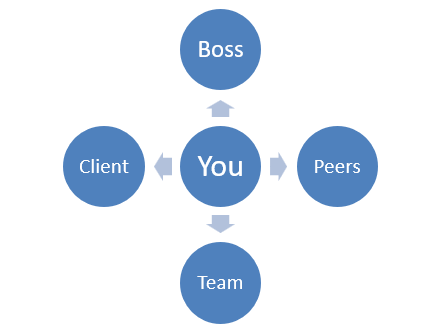Satish is a new Manager with Keaton International. Keaton is a large Financial Organization with its presence in more than 20 countries. They have a large software unit in India, where they support all the IT needs of the organization. Keaton is known for its culture of on-time delivery. They have a very competitive work culture and their employees are always on their toes. They have achieved success this way and hence take pride in their culture. Satish joined Keaton 3 months back from Charlie Financials. Charlie, though equally competitive in the market, they boast of a very people-friendly culture. Satish was a long term associate with Charlie and was awarded the “Best People Manager” for 3 consecutive years starting from 2016. While he was happy with Charlie, he did not find the work challenging enough. Also, in the last 3 years, the growth in this company had stagnated. He started exploring opportunities outside and was willing to challenge himself. That is when he got a really good offer with Keaton.
Three months into Keaton and Satish was feeling the heat. It was like a living hell for Satish. He started hating himself for leaving Charlie. When he started reflecting on all the professional relationships, he realized that he had an unhealthy relationship with most of them. (Note: Stakeholder map used in the above pic is a good tool to use). There were many times he felt, he should go back to Charlie and felt, he was not culturally fit for Keaton. But another part of him was resisting this. He felt that it would be taking a step back in his career. He decided to make a call to Shilpa, who had referred his CV in Keaton. Shilpa also had made a similar career move. She had moved to Keaton recently and had established herself as a very good Manager. During this interaction, Satish realized that the reason for the strained relationships is *mismatch in expectations*. Lot of his relationships were working on assumptions. Since Satish came from a different culture, his expectations of how things worked in Keaton was very different. He wanted to persist and try mending his relationships. He wanted to work on his expectations management. He wanted to start with his Boss.
He made a list of points and questions that he wanted to discuss so that he prepares well for the meeting. If you were to help Satish in preparing for this crucial meeting, what points/questions would be part of that preparation?
It is important that to remember that when you are managing expectations, you are both setting the expectations, and understanding others’ expectations. You are clarifying how much of it you can meet, how many of them you can meet with certain conditions and how many of them you can’t meet. It is not about yielding to everybody’s expectations. Also, the times change, the situations change and hence expectations management is a continuous process and never a one-time activity. Here are my recommended points:
- Professional Level:
- What are the problems that I am asked to solve? (or) the goals that I am supposed to reach.
- How do they expect me to solve this problem?
- Who are the parties involved?
- Once I listen to the problem(s), am I competent enough to solve these?
- How competent are the parties involved in partnering to solve this problem?
- What sort of help would I need in order to solve these problems?
- What are the outcomes that we want to see in short term, long term and mid-term?
- How do we know when we have reached there?
- Administrative Level:
- What is the timings that my manager is expecting me to work?
- What are the number of meetings that he expects me to have with him and with other stakeholders/team?
- Does he expect me to come to office everyday or he is OK with hybrid? What ratio he would be comfortable with? What ratio I would be comfortable with?
- The meetings that are mandatory and the ones that are optional
- Location of work
- Some of the points that are most of the times unstated. But mostly plays at the *psychological level*. It is important to clarify these points so that the relationships become stronger.
- How much Autonomy would I have in this role?
- How much of reporting do I need to do?
- What is considered as Success?
- Are the expectations realistic?
- Are there any ethical issues in some of the tasks that I am asked to perform?
- How open is he for any new ideas?
- Is he willing to “Change” or only looking at others to Change?
- How open is he to be challenged?

